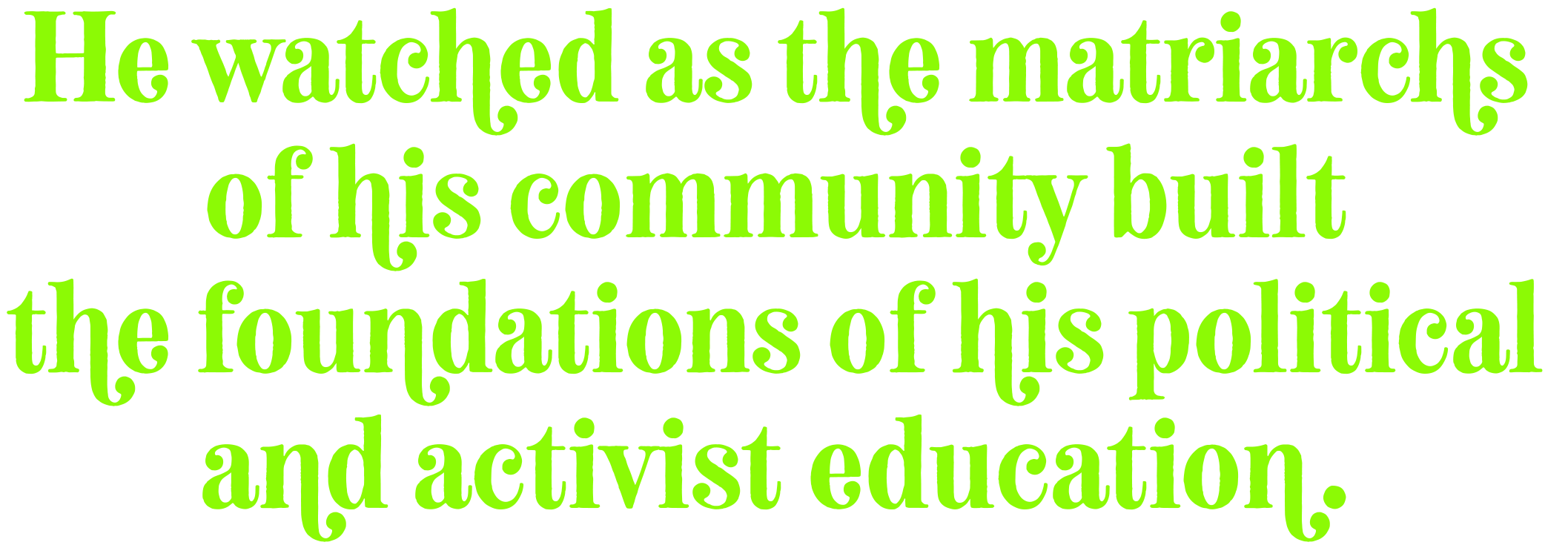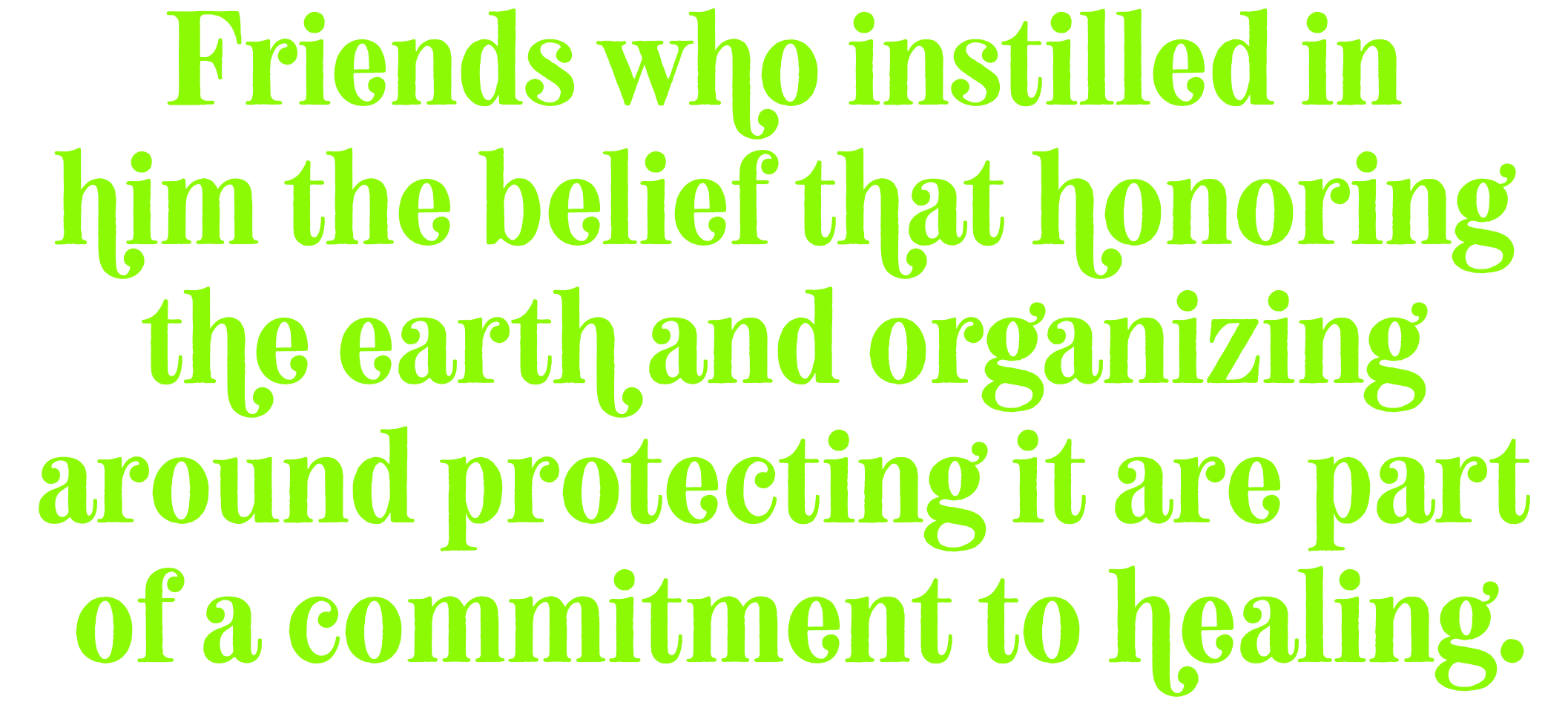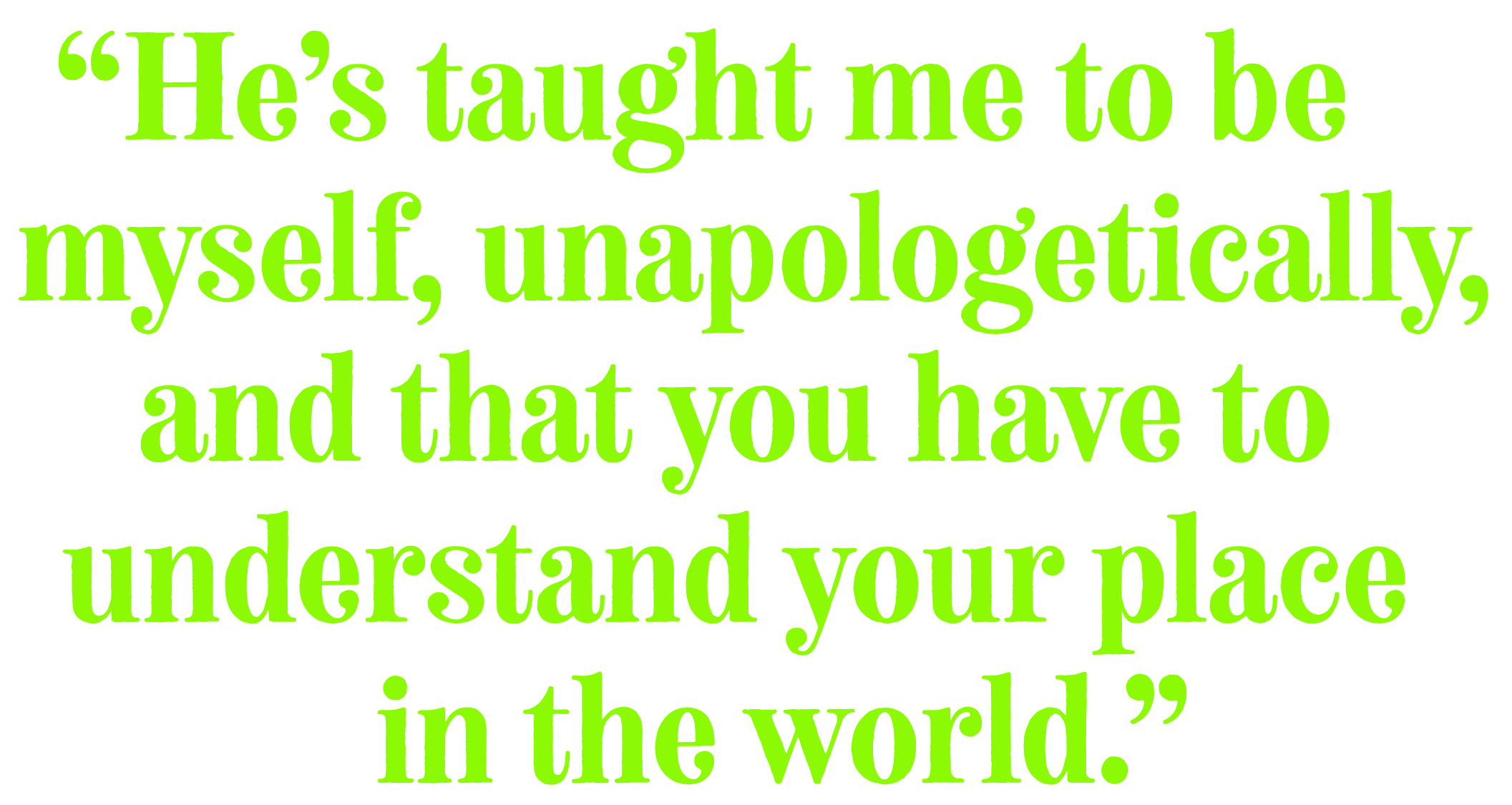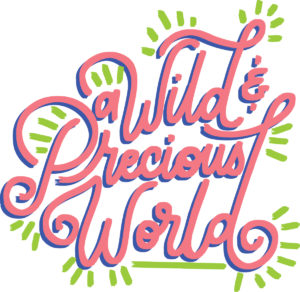

Lettering Marla Bonner | Writer Anaïs Deal-Márquez | Photography Sarah White


Louis Alemayehu talks often about our shared responsibility to get in balance with the earth.
With seamless clarity, he names the conditions we have inherited, and frames our current climate crisis as a result of the industrial revolution and colonization. “We need to see that, name that, and act accordingly with confidence, courage, and a kind of fierceness in the face of what looks very daunting and impossible,” he says, “and believe we are going to do the right thing no matter what.”
Whether at a poetry reading, a cultural exchange, an organizing meeting, or a meditation circle, Louis shares his stories as a gentle invitation to reflect on what it is to exist in a fractured world, while living in authentic relationship with the environment and with each other.

Louis is now a prominent Twin Cities voice in organizing for environmental sustainability,
but when talking about his childhood, Louis pays his respects to the south side of Chicago and the Englewood neighborhood that gave birth to his parents. With pride, he shares it was one of the early destinations of black migrations from the South. “Englewood was one of those places that had Black people from all over, who had already been displaced from their African languages and traditional ways,” Louis says. “It was one of those places where African American culture really formulated.” By the time Louis was born, his parents had already decided to move to Princeton Park — a South Side neighborhood that, like Englewood, was in transition from being Orthodox Jewish to African American.

In this changing neighborhood, Louis began learning about community organizing and activism. He watched as the matriarchs of his community built the foundations of his political and activist education. When he was a child, the Illinois Central Railroad ran right behind his house, with no buildings in between their back door and the train tracks. His mother and other mothers in the community went around with petitions that eventually forced the Illinois Central Railroad to build a fence that stretched from 95th street to 90th as a safety precaution to protect children. Louis would begin his own journey to organizing in the church and then continue in college and beyond. “A lot of my activism comes from my grandmother and my mother,” he says. “I am in their footsteps.”

Louis speaks of a Chicago childhood with an abundance of green spaces that provided an escape into nature for a curious child like himself.
“I learned to listen to the sounds of nature,” he says. “My sense of being this isolated body just disappeared, and I was just melting into the entire environment I was in.”
His youth was marked by key historical moments that would define national movements of resistance and liberation. In the middle of his senior year in High School, John F. Kennedy was killed, followed by the assassinations of Malcolm X and Martin Luther King Jr. During the years that followed, Louis saw the Civil Rights movement become a catalyst for so many people in growing a new understanding: “They too needed to be liberated or visible at a time when mainstream society was telling them they didn’t exist and shouldn’t exist.”
Louis made his way to Minnesota in 1964 to go to Concordia College in Moorhead. His early work to protect the environment was with the Mississippi River Revival where he organized cultural festivals that raised awareness about human beings’ impact on our planet’s water. This continued through the 1980’s, as Louis’ work with the North American Water Office incorporated spirit gatherings and festivals that created space for people to communicate across language, nation, and race to look at what was happening to the earth.

Louis is always in the mix, posing challenging questions to people in power and to his fellow neighbors.
As an organizer for environmental justice, he’s pushed the state government to put air monitors on the North side, worked to bring community, city council and utility companies together over building local, renewable energy, and shared lessons from rural Native communities beginning to use wind energy.
Most recently his activism has taken him to Sierra Leone where he has been an advisor to the Sierra Leone Foundation for New Democracy, a project started by Hindolo Pokawa in his home village of Mondema, which incorporates a sustainable model to address food insecurity in the community by uplifting local Indigenous knowledge around plants and farming.


As he shares his stories, Louis weaves in the people who guided and supported his growth.
Friends who instilled in him the belief that honoring the earth and organizing around protecting it are part of a commitment to healing. He names the Indigenous leaders with whom he has built communities of healing and resistance. Tom Goldtooth, John Trudell, Juanita Espinosa, the list goes on. He names his ancestors who were conductors in the underground railroad and knew what it was to live in balance with the earth as they fought for freedom and liberation.
And that balance with the earth is at the core of Louis’ philosophy on environmental justice. It’s a philosophy that reclaims the Indigenous ways and wisdoms that connect us to the earth. “When I think about being Indigenous African, and the villages that we merged from, the question of how we live in balance with the environment that we are living in is important,” he says.

Louis honors those who gave so much to him by investing in young leaders and artists creating change in their community. “I keep having these experiences” he says, “where I am realizing I need to have gratitude for what’s been given to me, or how people have invested in me.” Louis is a powerful, gentle presence that offers a listening ear and honest conversation with great generosity. A number of people know they can come to him with almost anything, from seeking advice, to ideas for creative collaboration. Yvette Murrell, a close friend of Louis echoes what so many who are in community with him say, that being in relationship with him is an honest and vulnerable exchange. “He listens to spirit call,” she says, “and goes to where he is being called to.”

It is his ability to open a space that allows people to be authentic and feel whole.
Edwin Gonzalez, a youth worker and artist, speaks of Louis’ mentorship as embodying an openness to learn. “He’s taught me to be myself, unapologetically, and that you have to understand your place in the world,” he says. Tensae Fayise Abrahim, a cultural organizer and poet, appreciates the bridges Louis builds between poetry and music. “Learning from a poet grounded and rooted in the Black Arts tradition, and who carries strong oral history traditions has deeply informed my own poetry,” she says. Louis’ vulnerability in addressing a fractured, chaotic world while simultaneously sharing his commitment to healing and transformation opens the door for others to do the same.

“How do we live in balance with the people, the animals, nature, and the ancestors?” This is a question Louis wrestles with in his poetry and storytelling. In many ways his artistic development happened in alignment with his journey into activism, and his journey into healing. Louis’ reflections on our future are informed by his nuanced analysis of the past and present. He names the importance of building an organizing culture able to be engaged in conflict that moves us to learn and heal. His call to action for environmental justice? Start with food. Join collaborations to create new food systems where we live, and take back ownership of our health from a food system that values profit over people’s wellness.

“This is about taking back our power,” Louis says. “Taking back the wisdom that I believe our ancestors intended us to have.” His generous offering to our community and our future is a powerful nudge toward optimism, and toward the idea that we are able to be whole. And in that healing and reckoning with what has come before, an invitation to become active players in building balance with the earth and our environment.

Ben and Janiece | Cecilia Martinez | Louis Alemayehu
This story is part three of our new story and event series Pollen Live: A Wild and Precious World. Each of the three stories will explore different aspects of the environmental justice movement, and our live event will bring together interactive readings, music, performance, and art to share a stage with leaders from within that movement. Stay tuned for details!

Contributors




